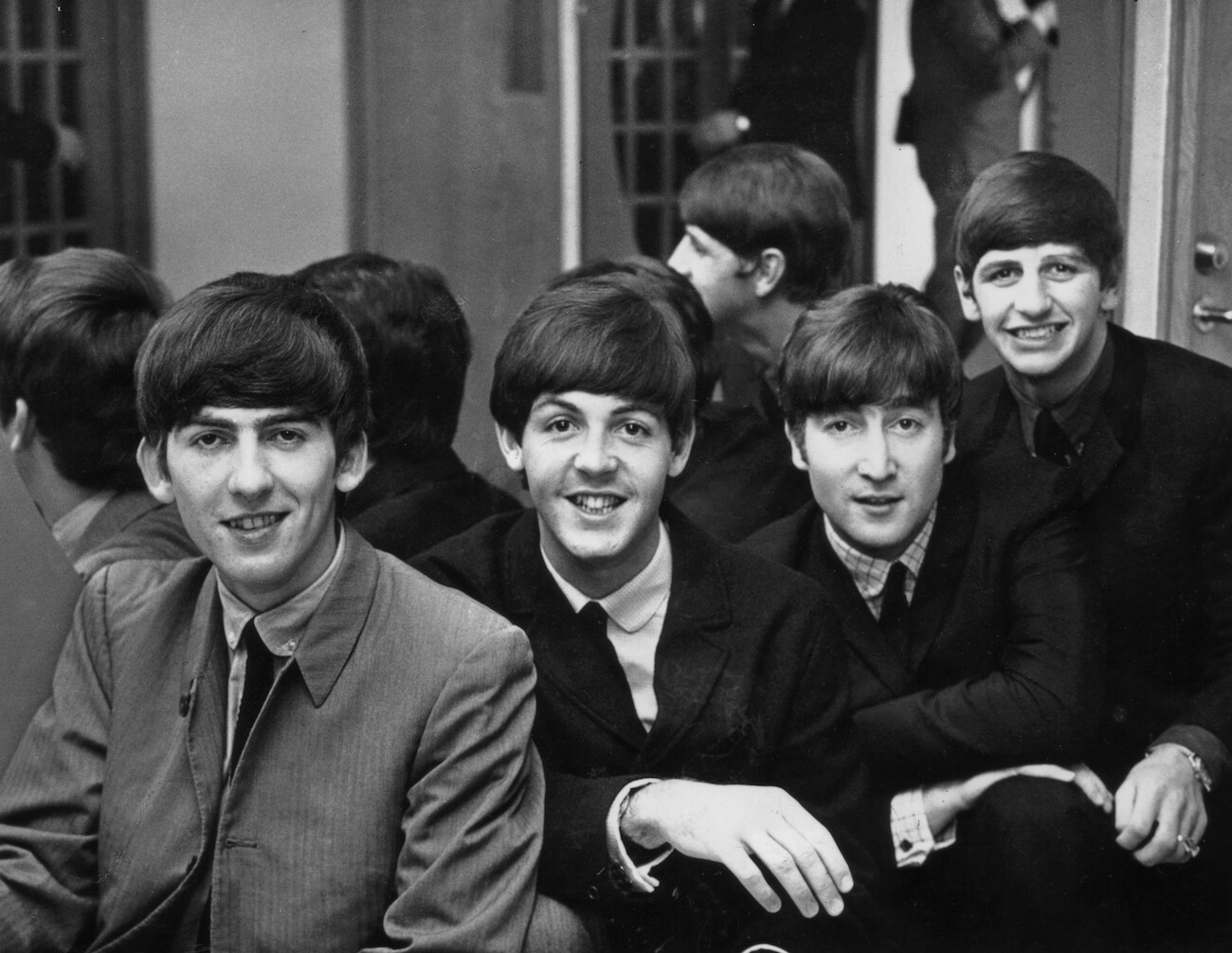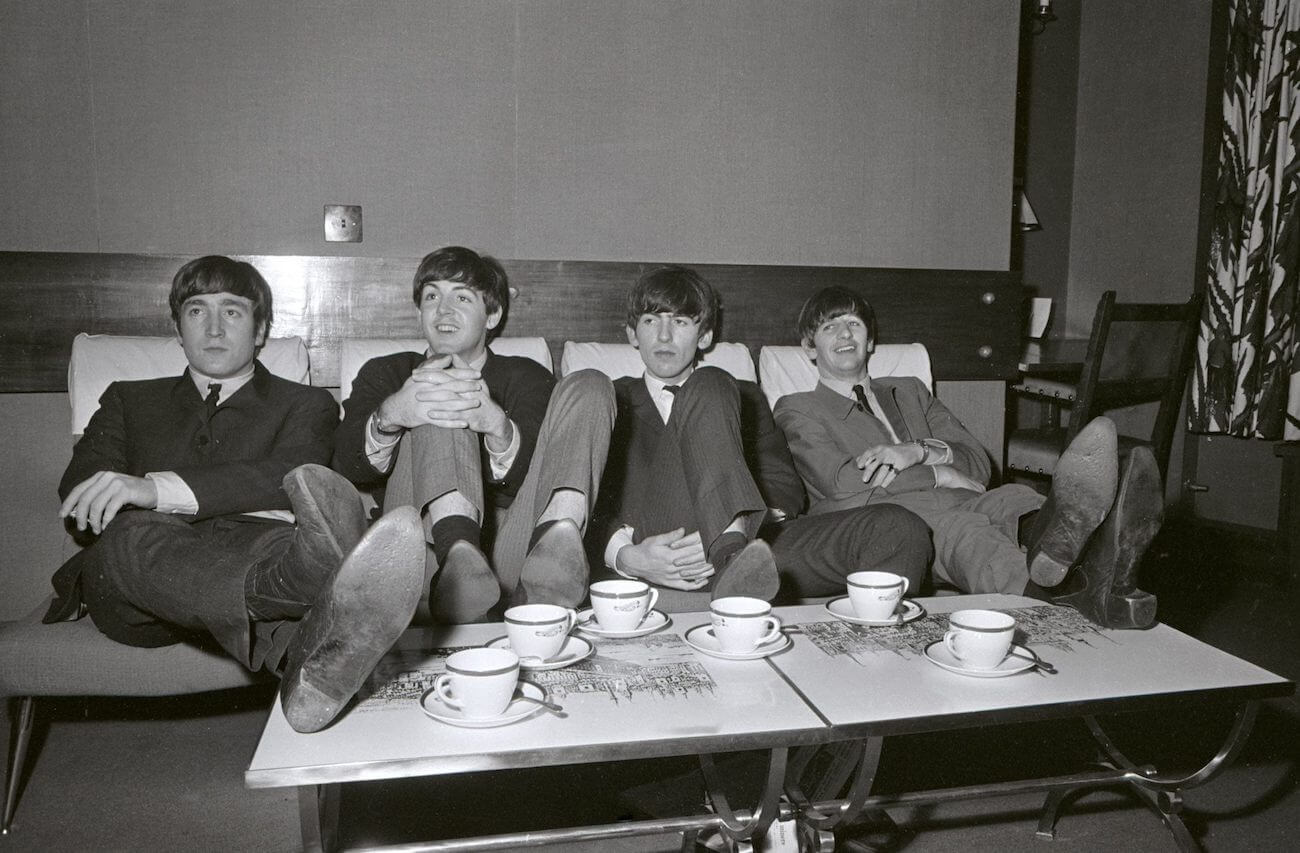
OTD: The Beatles Started Their Publishing Company Northern Songs — We Wish They Hadn’t
On this day in 1963, The Beatles made the horrible mistake of signing the contract that created their publishing company, Northern Songs. Within a few years, the Fab Four learned they should’ve never entered into a binding agreement with Dick James.

The band’s manager was doubtful of music publisher Dick James’ skills
Once The Beatles released “Love Me Do,” the group, their manager, and their producer knew they needed a good publisher to maximize the value of their songs. George Martin recommended Dick James Music to The Beatles’ manager, Brian Epstein.
Epstein met with James and offered him The Beatles’ “Please Please Me,” but he was hesitant about James’ publishing skills. In 1963, James was new to music publishing, but wanted to be The Beatles’ publisher. To wow Epstein, he organized the group’s first TV performance on Thank Your Lucky Stars.
Epstein was amazed that James got The Beatles a slot on the show so fast. It impressed the manager enough to want to do business with the publisher. It was one bad decision after another.
The Beatles signed away their catalog to Northern Songs on Feb. 22, 1963
After The Beatles and Epstein decided James was the man they could trust, the publisher suggested he and Epstein start a publishing company to house Lennon-McCartney songs. On Feb. 22, 1963, Epstein and The Beatles signed the necessary contracts to create Northern Songs despite “not really knowing what it was at all about,” Paul McCartney said in Barry Miles’ Many Years From Now.
“We were signing our rights away for our songs. John and I didn’t know you could own songs. We thought they just existed in the air. … And therefore, with great glee, publishers saw us coming. We said to them, ‘Can we have our own company?’ They said, ‘Yeah.’ We said, ‘Our own?’ They said, ‘Yeah, you can. You’re great. This is what we’re going to do now.'”
Paul, John Lennon, and Epstein received 49% of Northern Songs, while James and his partner Charles Silver owned 51%.
However, at the time, The Beatles were desperate and were just as naive as Epstein. “We were desperate to get a deal,” Paul recalled in The Beatles Anthology (per Ultimate Classic Rock). “Brian did do some lousy deals and he put us into long-term slave contracts, which I am still dealing with.”
Despite their popularity, The Beatles saw little money because the U.K. tax rate was more than 90%. So, in 1965 Northern Songs became a public company listed on the London Stock Exchange. However, that lowered Joh and Paul’s shares to 15% each. George Harrison and Ringo Starr shared 1.6%, Dick James Music held 7%, his family 15%, Silver 15%, and NEMS Enterprises (Epstein) owned 7%.
Later, George said he was glad he’d only written a few Beatles songs. The Beatles’ deal with James was pretty bad in numbers, but it got even worse toward the end of the group’s lifetime.
The Beatles lost control of their catalog when James sold his shares of Northern Songs
By the end of the 1960s, The Beatles and James’ relationship soured. The Beatles were breaking up, and James immediately sought to dissolve their contractual agreements. In March 1969, James and Silver abruptly sold their shares in Northern Songs to ATV for £1,525,000. They gave John and Paul no notice and denied them the chance to buy them out.
John and Paul tried to bid for their catalog, but they needed more to secure a purchase. Then in 1985, the rights to The Beatles’ catalog and others went up for public auction. Michael Jackson bought the collection of 4,000 songs, including 250 by Lennon-McCartney, for $47.5 million.
However, Paul eventually got The Beatles’ catalog back. According to American Songwriter, Jackson later sold 50% of ATV to Sony for $95 million. At Jackson’s death, Sony fully controlled all of The Beatles’ songs.
After a 2017 lawsuit, “Paul finally reached a settlement with Sony/ATV over copyright to the Beatles catalog under the US Copyright Act of 1976, which states that songwriters can reclaim copyright from music publishers 35 years after they gave them away,” American Songwriter wrote.
If only The Beatles and Epstein hadn’t trusted James.


